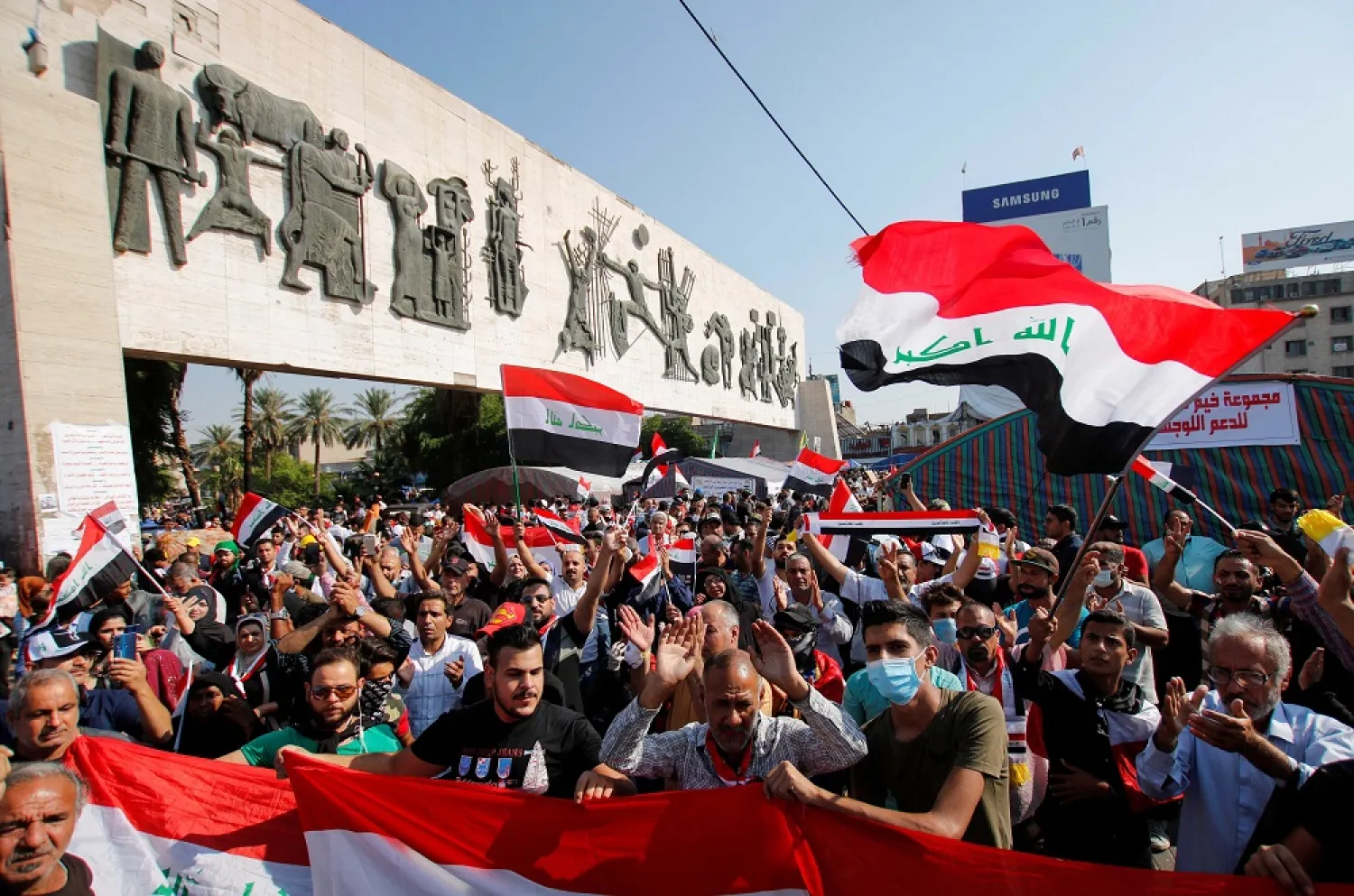Back in October 2019, unprecedented protests demanded the fall of Iraq's ruling class. One year on, with a new government in place and nearly 600 protesters killed, almost nothing has changed.
The nationwide demonstrations which broke out on October 1, 2019 spiraled into a decentralized movement slamming unemployment, poor public services, endemic corruption and a political class more loyal to Iran or the US than to Iraqi citizens.
It led to the shock November 1 resignation of then-premier Adel Abdel Mahdi, succeeded after months of political deadlock by Prime Minister Mustafa al-Kadhimi, who pledged to integrate protesters' demands into his transitional government's plans.
But on the ground, little has been achieved.
Kadhimi has set an early parliamentary vote for June 6, 2021, nearly a year ahead of schedule.
"Protesters wanted early elections and a new electoral law. We're doing that," Abdelhussein Hindawi, Kadhimi’s advisor on elections, told AFP.
But while parliament approved a new voting law in December, essential points including the size of electoral districts and whether candidates would run independently or on lists have yet to be agreed by lawmakers.
And despite repeated claims he has no political ambitions and would only serve as a transitional premier, Kadhimi himself appears to be preparing for an electoral fight.
Several MPs and members of rival parties told AFP the prime minister's advisors are scouting candidates for the 2021 elections, hoping he could secure a new term in office.
"He's stuck because he has to make a decision about where he wants to be," said Renad Mansour, a researcher at the UK-based Chatham House.
"Does he want to be PM for another four years and play politics, or does he want to change something right now?"
One foot in, one foot out
When he came to power, Kadhimi pledged to guide Iraq through a dire fiscal crisis, saying state coffers were "nearly empty" after years of waste and an oil price slump.
The World Bank said Iraq's poverty rate could double to 40 percent this year and that youth unemployment, already at 36 percent, could rise further.
Kadhimi’s cabinet first vowed to reduce the public payroll and audit stipends handed out to millions of Iraqis, but walked back the policy following public criticism.
It changed course again in August, hiring hundreds at the defense ministry -- but not enough to stop sit-ins outside other government offices demanding jobs.
And Finance Minister Ali Allawi missed a late August deadline to submit a "white paper" of economic reforms that is still being finalized, Iraqi officials told AFP.
Kadhimi also said he would prioritize Iraq's fight against the novel coronavirus, which had in May killed 100 people.
Now, the death toll stands at close to 9,000, with the health ministry warning hospitals could "lose control" if the spread is not contained.
The PM has few allies in parliament, where pro-Iran MPs have bristled at his references to protester demands.
"He's had one foot in the elite camp and one foot in the anti-establishment camp. At the end of the day, he ends up not satisfying either," said Mansour.
'It's too sensitive'
The premier has also struggled to make good on his promise to bring those responsible for the deaths of nearly 600 protesters and activists since last October to justice.
In September, his government announced that families of victims could apply for compensation from the state, but no funds have been disbursed yet.
A few weeks later, Kadhimi said a statue would be erected in Tahrir Square, the epicenter of Baghdad's rallies, as well as in the protest hotspot of Nasiriyah further south.
"I don't recall a statue being among our demands last year," wrote Ali, a young protester from east Baghdad.
Meanwhile, the intimidation campaign has continued, including the abduction of a German national and the killing of scholar and government advisor Hisham al-Hashemi in July.
"We know who and where the killers are, but we cannot arrest them or announce that. It's too sensitive," one Iraqi official told AFP on condition of anonymity.
Rocket attacks on diplomatic missions and military convoys have increased, with hardline groups becoming more brazen in their threats against Kadhimi.
Many of those factions fall under the state-sponsored pro-Iran Popular Mobilization Forces paramilitary network, and being unable to exert full control over them has made Kadhimi look "weak", Mansour said.
"The challenge in Iraq is no one man can fix it -- but certainly not a man who believes in incremental slow change at a time that you have such a violent context," he said.














